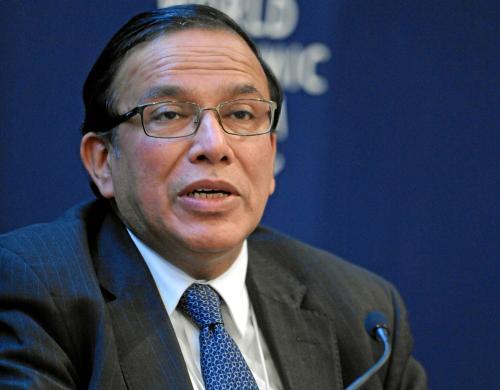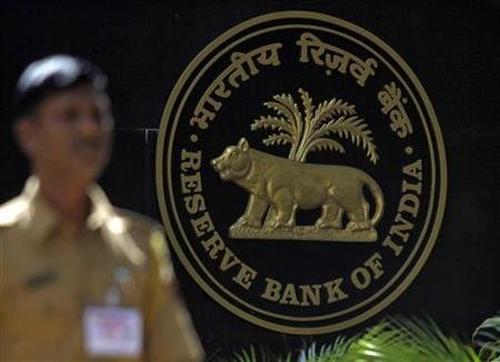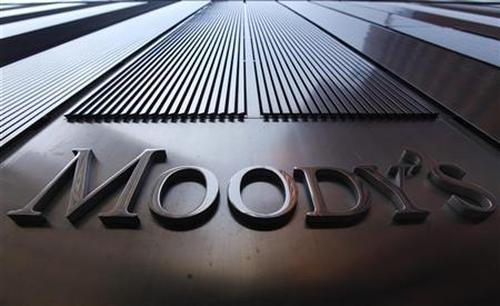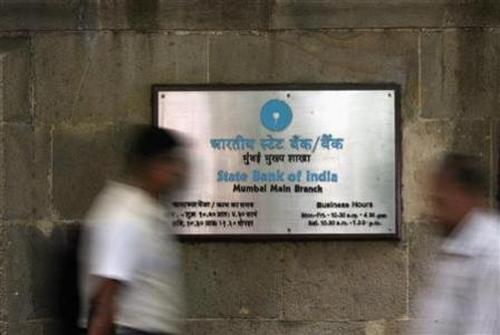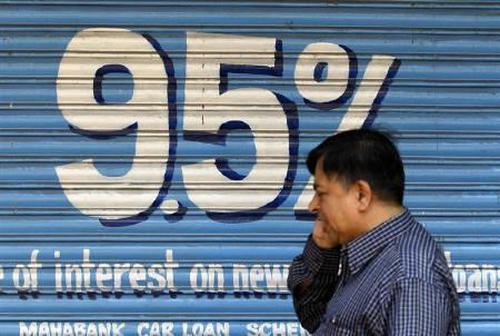 | « Back to article | Print this article |
Pratip Chaudhuri: SBI's conscience keeper?
The first six months are usually a honeymoon period in a CEO's life. But Pratip Chaudhuri says his first six months as chairman of State Bank of India (SBI) were "terrible". We soon find out why, write Shyamal Majumdar and Abhijit Lele.
The intense public spat between his predecessor and the banking regulator over the so-called teaser home loans was bad enough and Chaudhuri had to move quickly to douse the fire.
But that controversy was small change compared to what he had discovered just a month after moving to the corner office in April 2011: the bank was left with a Rs 10,000-crore (Rs 100 billion) unprovided pension liability over the past five years.
If it was provided from the profit and loss account, the country's largest bank would be deep in the red for the first time.
The crisis was somehow averted after the central bank allowed SBI to make a one-off provision from its reserves and the government said the bank would be capitalised.
But more than the numbers, it was an issue of credibility, for which the markets punished SBI. "The decision by the previous management to push such things under the carpet was difficult to understand. No one knows why the requirement of provision for the liabilities was suppressed from the auditors," Chaudhuri says, with remarkable candour.
The pain in his voice lingers as we settle down at Corbett, a private dining room at the Belvedere in Mumbai's Oberoi hotel.
Chaudhuri says what hurt him the most was that it "negated everything that SBI stood for, since the bank was always known for its correctness and under-provisioning was a dirty word."
Chaudhuri is, however, quick to acknowledge that his ex-boss, O P Bhatt, did take some "bold" decisions and his aggressive profile did rub off on the image of the bank.
Click NEXT to read more...
Pratip Chaudhuri: SBI's conscience keeper?
The sweet lime soda and asparagus soup arrive, giving us an opportunity to ask him about his own fair share of disagreements with the Reserve Bank of India (RBI).
But Chaudhuri laughs them off and says his comments about the abolition of cash reserve ratio (CRR) had nothing to do with SBI.
He just wanted to initiate a discussion on a topic that affects all banks. He is glad RBI recognised the problem and has been reducing CRR gradually.
Chaudhuri orders a vegetarian thali (he is a strict vegetarian on Thursdays in accordance with the wishes of his wife) and we take the non-vegetarian option. The thali arrives in a jiffy, which is not a surprise given that two stewards are in attendance.
The SBI chairman says he is against a personality cult (he believes more in content than posturing) and has always believed in being surrounded by people who can question him and pick holes in his arguments.
"People generally say yes to whatever the chairman says. But that's not the ideal situation to be in," he adds.
To ensure SBI remains a thought leader, Chaudhuri meets the CFO, chief economist, and group heads as frequently as possible to pick their brains. The arguments about CRR were germinated during one such brainstorming session.
This willingness and ability to listen to others is probably why he succeeded in one of his toughest assignments before becoming chairman: the seamless merger of State Bank of Saurashtra (SBS) with SBI.
There were a lot of misgivings among SBS staff even though the management had sweetened the deal (like giving SBS staff an option to get both pension as well as provident fund).
Click NEXT to read more...
Pratip Chaudhuri: SBI's conscience keeper?
Though many of his colleagues thought he was being too defensive and should just push through the merger, Chaudhuri stuck to his own style of holding detailed discussions with SBS staff at all levels. "The idea was not to be seen as a conqueror," he points out.
He has been criticised for being defensive on other occasions as well. For example, finance ministry officials were upset with him for not "forcefully" speaking out against Moody's, which had downgraded the bank last year.
But Chaudhuri says such knee-jerk response has no meaning. "You don't quarrel with your doctor. In any case, I didn't want to be in denial mode because it was a fact at that time that we weren't well capitalised. Moody's has since changed its opinion," he adds.
The "people skill" that he picked up during his "hostel days" as an MBA student in Chandigarh is something that also helped him tackle a sensitive situation when he got the top job over his two batchmates - Hemant Contractor and Diwakar Gupta.
Chaudhuri says he did two things - one, give both of them enough space (each has important portfolios to handle, unlike the earlier practice of not giving managing directors anything important); and two, make sure that he goes to their cabins once in a while to discuss issues. "They remain personal friends," Chaudhuri says.
The main course is over and he insists that we try the vanilla ice cream. How does his family (his daughter is a probationary officer with SBI and son is studying in Indian Institute of Technology, Kharagpur) cope with a workaholic like him? Chaudhuri smiles and says SBI has given him everything and he is only trying to give something in return.
Chaudhuri says SBI has travelled a long distance since the initial days of his st#8747 a Rs 3,500-4,000 crore (Rs 35-40 billion) quarterly profit is the "new normal" against the earlier Rs 2,000 crore (Rs 20 billion)
Click NEXT to read more...
Pratip Chaudhuri: SBI's conscience keeper?
Over the next half an hour, he gives us a detailed account of what he has tried to do. SBI, he says, has a good sourcing of cheap savings bank deposits, which account for 37 per cent of total deposits.
Bulk deposits (he terms them "lazy deposits") are just 1.5 per cent compared to the average 25-30 per cent of other nationalised banks.
He has also rejigged the organisational structure by bringing back zonal managers - posts that were scrapped by the earlier management to reduce layers and enable decision-making - though the effect was exactly the opposite.
It became difficult for general managers to give time to the army of junior managers who started reporting to them directly.
This affected loan monitoring and recoveries. "We lost a lot of small-scale industry business to private banks because decisions were delayed," he says.
The other important decision he took was to stop outsourcing of management thinking. "The influence of outside consultants had become so pervasive that our own people stopped thinking. I have no problems with McKinsey's advice, which is generally good, but our implementation needed to improve," he says.
For example, Mckinsey had said all loans to small and medium enterprises (SMEs) must be vetted by central processing centres. It was a good idea, but the bank didn't consider the fact that the number of such processing centres needed to go up substantially to cut delays in disbursements and other services.
Similarly, home loan applications used to get stuck in the processing centres. The recent empowerment of 40 branches to process home loans has led to the number of disbursals going up from 400 to 1,700 a day in the last few months.
Click NEXT to read more...
Pratip Chaudhuri: SBI's conscience keeper?
There were other problems as well, which has since been sorted out. The interest rates for SMEs were ridiculously high at 14 to 17 per cent (the reason, he says, was SBI's earlier obsession with home loans) and the bank had taken its deposit franchise for granted. "We almost became a dinosaur," Chaudhuri says.
It's almost two hours now, but the SBI chairman is in a mood to talk. Over green tea, he says the market is still to recognise SBI's true value (it's been pipped by HDFC Bank as India's biggest bank by market capitalisation), but that is more to do with SBI's inability to engage with foreign institutional investors (FIIs).
Come January and the SBI brass will hold regular meetings with FIIs to convince them about the good work.
So, what does the external scenario look like? Chaudhuri says the economic stress is likely to increase. The biggest challenge, he thinks, is that people have started fearing lack of demand and are not investing. The pipeline is almost dry for new corporate loans as no new projects are coming up.
"Big companies can withstand the slack for one more year, but their suppliers may not. If the visibility for demand remains poor, companies could start rationalising new project divisions, leading to job losses. That is when it will really start hurting," he adds.
And since the overall credit pie isn't increasing, the percentage of non-performing asset (NPA) will look bigger in banks' books, Chaudhuri predicts. That trend is already visible as SBI's gross NPAs climbed to 5.15 per cent of total advances in the September quarter, up from 4.99 per cent in the June quarter.
As his Honda Accord waits in the foyer, we ask about his plans after retirement in September 2013.
Chaudhuri says he has a fairly large ancestral house in New Delhi's Chittaranjan Park, courtesy his father who was in the Planning Commission, and hopes to settle down there.
But he has made no firm post-retirement plans yet, since that would mean "being unjust to his present job".
It's obvious you just can't take SBI out of Pratip Chaudhuri.
